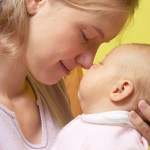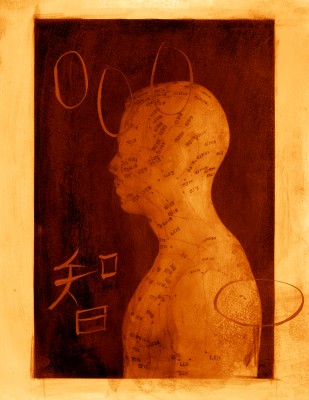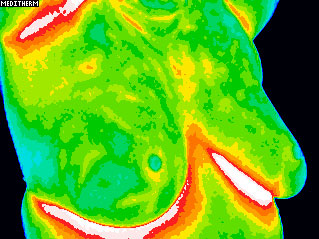 All of us women know that stress and emotions play a huge role in how smooth our menstrual cycle will go. If it is a stressful month, we are more likely to be irritable around our menses and have symptoms like insomnia, fatigue, headaches, cramping, depression and so on….. But why and how does this relate to fertility? A Little More Than The Basics—Eastern Asian medicine’s view of women’s physiology is complex and fascinating. While each organ system has an important role in menstruation, fertility and pregnancy, the heart and kidneys have a special relationship with the uterus (the Chinese use the word uterus to represent a number of endocrine functions and structures such as the ovaries, fallopian tubes, pituitary and hypothalamus). The Chinese character for uterus is the same as for the pericardium (the protective wrapping around the heart) plus the sign for flesh. The uterus is sometimes referred to as a woman’s “second heart”. In Chinese medicine the health of the heart is synonymous with emotional balance. With a healthy heart people feel a general sense of peace and well being as opposed to the insomnia, depression and anxiety that accompany a distressed heart. The health of the uterus and the heart are dependent on each other. The heart and the uterus are intimately connected via the bao mai. This is an energetic connection that allows communication between these two organs. Thus, if the heart is not settled the menstrual cycle will be affected. The heart may not have enough blood to send down to the uterus to nourish and sustain a pregnancy. Or, as the heart gives its blood to the uterus, it is left without enough blood for its own functioning. Like the heart, the kidneys also have a close connection to the uterus via the bao luo. Through the bao lou the kidneys support healthy egg production and ovulation. Additionally, should a pregnancy occur, it is the kidneys that gives the uterus the strength to hold the pregnancy to term. If the kidneys are weak, woman may have irregular menstruation, or anovulatory cycles (menstrual cycles without ovulating) and habitual miscarriages. Acupuncture, dietary therapy and herbal formulas enhance fertility by regulating the functions of the heart and kidneys and strengthening their connections to the uterus. Chinese medical treatment also supports other energetic connections which sustain pregnancy such as the Chong, Ren and Du meridians. These fundamental energetic pathways serve as the foundation and blueprints for new life. We could spend days discussing Chinese medicine, fertility and women’s physiology. In fact, in the book I’m coauthoring on boosting fertility with Chinese medicine I intend to. But lets save that for later and keep is simple for now. In short, menstruation and fertility is a multifaceted process that can be regulated and supported with acupuncture, herbal therapy and simple dietary shifts. Chinese medicine views fertility as a progression towards health rather than just the even of pregnancy. To illustrate this point lets look at a study that measured women’s response to clomiphene (clomid) vs. acupuncture for ovulation and pregnancy. Acupuncture Increases Pregnancy Rates In Chinese Acupuncture & Moxabustion, Song et. all reported on research examining clomiphene and acupuncture’s effects on ovulation and pregnancy rates. In this study 120 women were divided into two groups. One group received clomiphene and one group received acupuncture. After three menstrual cycles scientists measured ovulation, basil body temperature fluctuations, and pregnancy rates. While both clomiphene and acupuncture groups had the same ovulation rates, the acupuncture group had more pregnancies and fewer miscarriages than the clomiphene group.
All of us women know that stress and emotions play a huge role in how smooth our menstrual cycle will go. If it is a stressful month, we are more likely to be irritable around our menses and have symptoms like insomnia, fatigue, headaches, cramping, depression and so on….. But why and how does this relate to fertility? A Little More Than The Basics—Eastern Asian medicine’s view of women’s physiology is complex and fascinating. While each organ system has an important role in menstruation, fertility and pregnancy, the heart and kidneys have a special relationship with the uterus (the Chinese use the word uterus to represent a number of endocrine functions and structures such as the ovaries, fallopian tubes, pituitary and hypothalamus). The Chinese character for uterus is the same as for the pericardium (the protective wrapping around the heart) plus the sign for flesh. The uterus is sometimes referred to as a woman’s “second heart”. In Chinese medicine the health of the heart is synonymous with emotional balance. With a healthy heart people feel a general sense of peace and well being as opposed to the insomnia, depression and anxiety that accompany a distressed heart. The health of the uterus and the heart are dependent on each other. The heart and the uterus are intimately connected via the bao mai. This is an energetic connection that allows communication between these two organs. Thus, if the heart is not settled the menstrual cycle will be affected. The heart may not have enough blood to send down to the uterus to nourish and sustain a pregnancy. Or, as the heart gives its blood to the uterus, it is left without enough blood for its own functioning. Like the heart, the kidneys also have a close connection to the uterus via the bao luo. Through the bao lou the kidneys support healthy egg production and ovulation. Additionally, should a pregnancy occur, it is the kidneys that gives the uterus the strength to hold the pregnancy to term. If the kidneys are weak, woman may have irregular menstruation, or anovulatory cycles (menstrual cycles without ovulating) and habitual miscarriages. Acupuncture, dietary therapy and herbal formulas enhance fertility by regulating the functions of the heart and kidneys and strengthening their connections to the uterus. Chinese medical treatment also supports other energetic connections which sustain pregnancy such as the Chong, Ren and Du meridians. These fundamental energetic pathways serve as the foundation and blueprints for new life. We could spend days discussing Chinese medicine, fertility and women’s physiology. In fact, in the book I’m coauthoring on boosting fertility with Chinese medicine I intend to. But lets save that for later and keep is simple for now. In short, menstruation and fertility is a multifaceted process that can be regulated and supported with acupuncture, herbal therapy and simple dietary shifts. Chinese medicine views fertility as a progression towards health rather than just the even of pregnancy. To illustrate this point lets look at a study that measured women’s response to clomiphene (clomid) vs. acupuncture for ovulation and pregnancy. Acupuncture Increases Pregnancy Rates In Chinese Acupuncture & Moxabustion, Song et. all reported on research examining clomiphene and acupuncture’s effects on ovulation and pregnancy rates. In this study 120 women were divided into two groups. One group received clomiphene and one group received acupuncture. After three menstrual cycles scientists measured ovulation, basil body temperature fluctuations, and pregnancy rates. While both clomiphene and acupuncture groups had the same ovulation rates, the acupuncture group had more pregnancies and fewer miscarriages than the clomiphene group.





